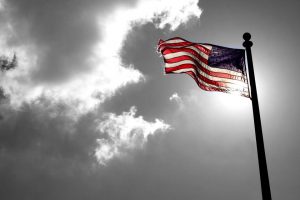Planning Marijuana Strategy Under Trump Administration
As we head into 2017, there is a great deal of uncertainty about what a Trump administration will mean for those in the marijuana industry in California and beyond. Cannabis advocates and industry players are struggling with attempting to formulate a strategy when no one knows exactly what the President-elect thinks about legalization.
There have been efforts to piece together an idea of what the strategy will be, based on off-hand remarks and Trump’s cabinet picks. Then there is the fact that conservatives have historically demonized marijuana use (including both the new attorney general, Sen. Jeff Sessions, as well as the new health and human services secretary, Rep.Tom Price). But then there is also the fact that Republicans have largely embraced the notion of empowering states’ rights. Plus, marijuana is no longer a red-blue issue, with many conservative Republicans favoring legalization, and there are also liberal Democrats who oppose it. Trump himself has said that he is in favor of medicinal marijuana access.
In light of all this, those in the industry have worked out some loose-level strategies and ideas that will likely need to be tailored as time goes on and the policies become more concrete.
The first notion is that pro-marijuana advocates can’t rest on their laurels or assume that their positions are safe. Now is not the time for complacency. At a recent ArcView Summit, industry investors and other insiders seemed optimistic, thinking there was no way Trump would meddle in state’s rights and also, cannabis is a cash cow for states. However, we also have a number of authoritarian personalities and stalwarts of the radical right who might have no qualms about re-invigorating the war on weed to assert their power. Just this year, Sessions told a Senate panel that those who support marijuana aren’t, “grown-ups” and those who smoke it, “aren’t good people.” The marijuana industry is in an especially fragile place because the law was founded on the Cole memo, which the Obama administration extended as a means to provide temporary relief to patients, growers, distributors and others. It could easily be reversed.
The second is for companies to gird themselves for the possibility of a government crackdown – and a possible return of the market to criminal gangs. We know for certain that Sessions is anti-marijuana. But whether we will see a resurgence of federal crackdowns will depend on how much power Trump delegates to Sessions. Some have imagined a likely scenario wherein Trump will not be very hands-on in the process, given is lack of experience in law enforcement. There could be political implications that might make Trump wary of reversing the Obama-era marijuana policy, given that even some of the reddest states have some form of legal marijuana. If a crackdown were to occur, it’s likely we’ll see a surge in drug-related gang activity. It could perhaps be even worse than before because state and local authorities might be reluctant to return to pre-legalization police policy involving marijuana. That would mean there is no legal/ recreational marijuana, but it’s still available on the streets. Guess who is going to be selling it? Without the cooperation of local authorities, federal investigators are going to have a hard time tackling that issue. Of course, the administration could at that point start using this as grounds to assert a wider crackdown on undocumented immigrants (i.e., they are bringing drugs, crime, etc.).
Currently, there is bipartisan consensus that we need to reduce incarceration and that marijuana should be legal. However, those agreements could be in jeopardy, which is why it’s important that we are careful about how the pro-marijuana messages are framed over the next four years. This will be especially important because Trump has proven to be someone who is easily influenced by the media and public opinion. That has the potential to be used to the advantage of those in the legal marijuana industry.
The Los Angeles CANNABIS LAW Group represents growers, dispensaries, collectives, patients and those facing marijuana charges. Call us at 949-375-4734.
Additional Resources:
Cannabis Strategy Under Trump: Here are Four Ways to Play It, Dec. 1, 2016, Leafly
More Blog Entries:
Study: Medical Marijuana Laws Linked to More Older Worker Participation, Nov. 16, 2016, California Marijuana Lawyer Blog
 Cannabis Law Group's Medical Marijuana Legal Blog
Cannabis Law Group's Medical Marijuana Legal Blog




